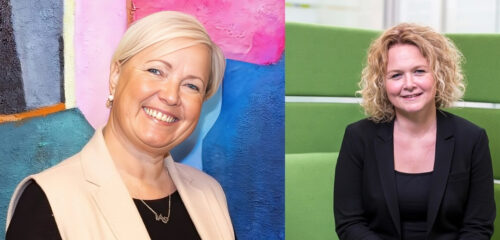
Dialogue
Can Children Be Loud and Choose Their Own Bedtime? How Perspectives on Child Well-being Differ Across Cultures
Preschool experts from Norway: Yvonne Lindstad and Trude Sydtangen
Perceptions of children’s well-being can vary significantly across countries and cultures. In Latvia, for example, a current topic of discussion is whether midday naps for preschool children should be mandatory or whether children should have the freedom to choose their form of rest. Meanwhile, in countries like Sweden and Finland, children do not nap during the day because they typically go to bed as early as 7:00 PM. In other parts of the world, the approach to child development differs even more. Some cultures believe that children should be “seen but not heard,” while others fully accept that children can be loud, active, and free to play. Attitudes toward children’s clothing also vary — some cultures insist that children must always be neat and tidy, while others see dirty hands and clothes as a natural outcome of play and exploration.
These differences illustrate that the concept of child well-being is interpreted differently across countries. This diversity highlights the importance of international experience exchange in education — particularly in early childhood education.
Children Must Grow Up in a Safe Environment
Cultural and traditional differences show that there is no one-size-fits-all model suitable for every child around the world. However, there are universal values that transcend geography: the desire for children to grow up in environments where they feel safe, heard, and respected. Increasingly, we emphasize the importance of allowing children to be who they are, rather than forcing them to conform to predefined expectations. Every child is a beautiful flower — but not all need to be roses.
Physical Activity Promotes Cognitive Development
Today, there is growing focus on supporting and developing each child’s individual talents and strengths. Instead of concentrating on what a child struggles with, there is a shift toward highlighting and building on their strengths. It is also increasingly understood that children learn most effectively when they are active — when the whole body, not just the mind, is engaged in the learning process. Recent research confirms that physical activity not only does not hinder cognitive development, it actually promotes it and helps children absorb new information more effectively. This understanding is transforming traditional views of the preschool learning environment — calm sitting and passive listening are no longer seen as the only or best ways for children to acquire knowledge and skills.
Children Should Be Given Choices
Involving children in decision-making is also key. Teaching the principles of democracy in early childhood does not mean that children can make unrestricted decisions, but rather that they are involved, listened to, and their opinions are respected. Children should be given choices in matters where they can genuinely decide. For example, asking a child whether they want to go to bed or eat dinner isn’t realistic, as not going to bed or skipping meals isn’t truly an option. But children can be given a choice between going to bed at 8:00 or 8:30 PM. Instead of asking if they want to eat, they can choose between two meals or different side dishes. It is crucial that children are offered real choices — this helps develop their sense of responsibility, rather than giving the illusion of choice where none exists.
The Well-being of the Child Must Come Firs
This approach — respecting each child’s individual needs, encouraging movement-based learning, and fostering critical thinking — should be the foundation of early childhood education. Based on the latest scientific research and international experience, it must be emphasized that the child’s well-being is paramount and should always be the top priority, regardless of cultural or other differences.
To strengthen the shared understanding of child development and to exchange best practices, a summit will be held in early May in Riga, organized by the preschool network “Dibber” (known in Latvia as “CreaKids”). The event will bring together experts from various countries to discuss current issues, compare different approaches, and explore ways to better support children on their developmental journey.
Regardless of culture, country, or tradition — children need to feel loved, understood, and accepted. Children’s well-being cannot be subordinated to customs or habits — it requires flexible thinking, openness to new knowledge, and a willingness to learn from others’ experiences. Only then can we create environments where every child, no matter where they are from, can grow up happy, safe, and able to realize their full potential.

 Log In
Log In